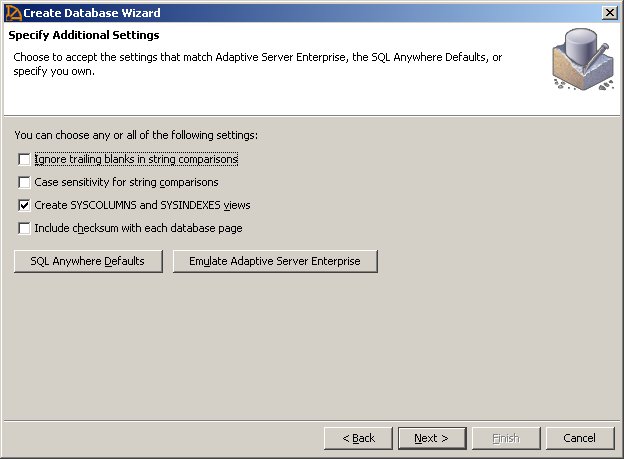Sybase IQ includes some default settings that match Adaptive Server Enterprise and SQL Anywhere. You can use the options on this screen to change those defaults. After you specify the settings you want to use, click Next.

Choosing this option causes Sybase IQ to ignore trailing spaces in string comparisons.
Choosing this option causes all values to be considered case sensitive in comparisons and string operations. Case Sensitivity defaults to ON for Sybase IQ databases. (When you connect to your database, the password that you type need not match the case sensitivity of your database. If you create the database with Case Sensitivity for string comparisons OFF, or with Case sensitivity for passwords OFF, the password “SQL” or “sql” works).
To support the ISO/ANSI SQL standard semantics, you would select Case sensitivity for both string comparisons and passwords ON (the default).
The SYSCOLUMNS view presents the information from the SYS.SYSCOLUMN table in a more readable format. This table includes default settings and primary key information for columns.
The SYSINDEXES view presents the information from the SYSINDEXES and SYSIXCOL tables in a more readable format. These tables include column index information extracted from the host data file or remote server table.
Database page checksums are used to detect whether a database page has been modified on disk. When a database is created with checksums enabled, a checksum is calculated for each catalog store page before it is written to disk. When a catalog store page is read from disk, its checksum is recalculated and compared to the stored checksum. If the values differ, the page has been modified or otherwise corrupted while on disk. Checksums apply to the catalog store only, not the IQ store.